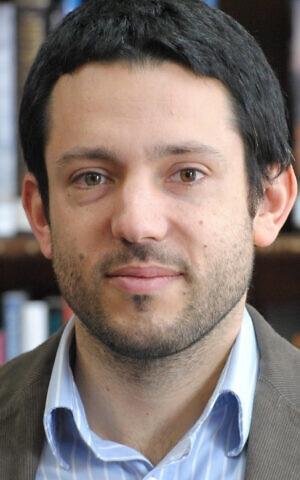Dr. Michael Edelstein, professor of Epidemiology and Public Health at Bar Ilan University (Courtesy)
Peer-reviewed finding is ‘the cherry on top’ for vaccines, which have already been shown to reduce infection and lower seriousness of illness, says researcher
By NATHAN JEFFAY
All ten of the most common long COVID symptoms were reduced by at least 50 percent among people who had at least two vaccine shots, the peer-reviewed study found. The reduction in shortness of breath, for example, was 80%.
The study compared Israelis who received at least two doses of the Pfizer vaccine with those who received one or none.
“This is really the cherry on the top of the cake — a benefit of vaccination that wasn’t anticipated,” Prof. Michael Edelstein, a Bar Ilan University epidemiologist who led the study, told The Times of Israel.
“We’ve known for a long time that vaccination reduces the severity of COVID-19 illness,” he added. “We are starting to see evidence there is even more benefit, namely protection against unpleasant — and sometimes life-altering — long COVID symptoms. So there is now an extra reason to get vaccinated, if you ever needed one.”
Participants in the study completed surveys with a variety of questions about previous COVID-19 infection, vaccination status, and any symptoms they were experiencing.
The researchers were from Bar Ilan’s Azrieli Faculty of Medicine and its affiliate hospitals in northern Israel — Baruch Padeh Medical Center, Ziv Medical Center and Galilee Medical Center. They compared vaccinated and non-vaccinated people in terms of post-COVID symptoms.
The reporting of fatigue was 62% lower among the vaccinated, headaches were 50% lower, weakness of limbs 62%, and persistent muscle pain 66%.
Shortness of breath was reduced by 80%.
Edelstein said that the study contributes to scarce information to date about the impact of vaccination on long COVID.
“We don’t fully understand what happens in the months and years following COVID-19 in terms of physical and mental health and wellbeing,” he said, adding that this study is part of a series he is working on to understand the impact of the vaccines on long-term quality of life, different COVID variants, and long-COVID symptoms.
